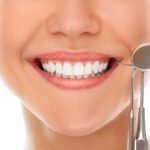Table of Contents
The Importance of Nutrition for Oral Health
A healthy diet plays a crucial role in maintaining optimal oral health. The nutrients we consume directly impact the health of our teeth and gums. By choosing foods rich in essential vitamins, minerals, and antioxidants, we can promote strong teeth and prevent common dental issues such as tooth decay and gum disease.

Incorporating a balanced diet that includes a variety of nutrient-dense foods is essential for supporting the overall health of our mouths. Nutrients like calcium, vitamin C, and antioxidants can help strengthen tooth enamel, reduce inflammation in the gums, and combat harmful bacteria that cause cavities. By prioritizing nutrition, we can boost our oral health and enjoy a brighter smile for years to come.
Understanding the Link Between Diet and Dental Health
A balanced diet plays a crucial role in maintaining optimal dental health. The foods we consume have a direct impact on the health of our teeth and gums. An unhealthy diet, high in sugars, acids, and processed foods, can contribute to dental issues such as cavities, gum disease, and overall poor oral health. On the other hand, a diet rich in nutrients like calcium, vitamin C, and antioxidants can promote strong teeth, healthy gums, and a lower risk of dental problems.
Nutrient-rich foods not only provide essential vitamins and minerals for the health of our teeth and gums but also stimulate saliva production, which helps to naturally cleanse the mouth and neutralize acids that can cause tooth decay. By choosing a diet that includes a variety of fruits, vegetables, whole grains, lean proteins, and dairy products, individuals can support their oral health and reduce the likelihood of developing dental issues. It is important to be mindful of the foods we consume and how they can either positively or negatively impact our dental health in the long run.
Key Nutrients for Strong and Healthy Teeth
To maintain strong and healthy teeth, it is crucial to ensure your diet is rich in key nutrients that support dental health. Calcium, a mineral essential for strong bones and teeth, plays a vital role in maintaining the integrity of tooth enamel and supporting jawbone health. Sources of calcium include dairy products, leafy green vegetables, and fortified foods.

Vitamin D is another important nutrient that aids in the absorption of calcium and contributes to overall dental health. This vitamin helps to regulate calcium levels in the body, promoting remineralization of enamel and reducing the risk of tooth decay. Fatty fish, egg yolks, and sunlight exposure are excellent sources of vitamin D, essential for maintaining strong and healthy teeth.
Superfoods for Optimal Oral Health
Superfoods play a crucial role in promoting optimal oral health by providing essential nutrients that support strong teeth and gums. Foods like leafy greens, such as spinach and kale, are rich in calcium, which is essential for maintaining healthy teeth and bones. Additionally, these superfoods are packed with vitamins C and K, both of which are important for gum health and wound healing within the mouth.
Berries, such as blueberries and strawberries, are also considered superfoods for oral health due to their high antioxidant content. Antioxidants help to reduce inflammation in the mouth and protect against bacteria that can lead to gum disease and tooth decay. Including these colorful fruits in your diet can provide a natural way to boost your oral health and overall well-being.
How Antioxidants Can Benefit Your Teeth
Antioxidants play a crucial role in promoting optimal oral health by protecting the teeth and gums from oxidative stress caused by harmful free radicals. Free radicals can damage the tissues in your mouth and contribute to various oral health issues, including gum disease and tooth decay. By incorporating a diet rich in antioxidants, such as vitamin C, vitamin E, and beta-carotene, you can help strengthen your body’s defense mechanisms against these destructive molecules.
In addition to their protective effects, antioxidants also aid in reducing inflammation in the mouth, which is a common factor in gum disease and other oral infections. Studies have shown that a diet high in antioxidants can help mitigate inflammation, leading to healthier gums and overall improved oral health. By including a variety of antioxidant-rich foods like berries, nuts, green leafy vegetables, and colorful fruits in your diet, you can enhance the health of your teeth and gums while also supporting your body’s immune system.
The Role of Vitamins and Minerals in Preventing Tooth Decay
Vitamins and minerals play a crucial role in maintaining optimal oral health and preventing tooth decay. Key nutrients like vitamin D, calcium, phosphorus, and vitamin C are essential for the strength and structure of teeth. Vitamin D, known as the “sunshine vitamin,” helps in the absorption of calcium, which is vital for the formation and maintenance of healthy teeth and bones. Calcium, on the other hand, is a mineral that provides the structural support necessary for strong teeth and plays a significant role in preventing enamel erosion and tooth decay.

Moreover, phosphorus works in tandem with calcium to strengthen tooth enamel and facilitate the remineralization process, helping to repair early signs of tooth decay. Vitamin C, an antioxidant, is essential for promoting gum health and supporting the body’s natural defense system against oral infections. A deficiency in these key vitamins and minerals can compromise oral health and increase the risk of dental issues such as cavities and gum disease. Therefore, it is important to ensure a balanced diet rich in these essential nutrients to help prevent tooth decay and maintain a healthy smile.
Incorporating Calcium-rich Foods for Strong Teeth and Bones
Calcium is an essential nutrient for maintaining strong teeth and bones. Incorporating calcium-rich foods into your diet is crucial for optimal oral health. Dairy products like milk, cheese, and yogurt are excellent sources of calcium that can help fortify tooth enamel and support bone density. Additionally, green leafy vegetables such as kale, spinach, and broccoli are non-dairy alternatives that can also boost your calcium intake.
Apart from dairy and greens, incorporating fortified foods like tofu, orange juice, and cereals can provide additional calcium for your teeth and bones. By including a variety of calcium-rich options in your meals, you can ensure that your body has the necessary building blocks to keep your teeth strong and resilient. Remember, a balanced diet with adequate calcium is not only beneficial for dental health but also essential for overall well-being.
Foods that Promote Gum Health and Prevent Periodontal Disease
To maintain optimal gum health and prevent periodontal disease, it is essential to consume a diet rich in foods that support oral hygiene. Incorporating nutrient-dense choices such as leafy greens, carrots, and apples can promote gum health by providing essential vitamins and minerals. These foods not only stimulate saliva production, which helps cleanse the mouth of bacteria, but they also contain antioxidants that combat inflammation and protect against gum disease.
| Category | Foods |
|---|---|
| Fruits and Veggies | – Apples |
| – Carrots | |
| – Celery | |
| – Leafy greens (spinach, kale) | |
| – Bell peppers | |
| – Berries (strawberries, blueberries) | |
| Dairy | – Yogurt |
| – Cheese | |
| Protein | – Fatty fish (salmon, mackerel) |
| – Lean meats (chicken, turkey) | |
| – Nuts (almonds, walnuts) | |
| – Seeds (flaxseeds, chia seeds) | |
| Whole Grains | – Brown rice |
| – Quinoa | |
| – Oats | |
| – Whole wheat products | |
| Beverages | – Green tea |
| – Water | |
| Others | – Onions |
| – Garlic | |
| – Cranberries (unsweetened) |
Additionally, foods high in vitamin C, such as citrus fruits, strawberries, and bell peppers, play a vital role in gum health. Vitamin C is crucial for collagen production, a protein that helps maintain the integrity of gum tissue and supports overall oral health. Including these vitamin C-rich foods in your diet can aid in preventing gum bleeding, inflammation, and the onset of periodontal disease. By making mindful food choices, you can actively contribute to the health of your gums and safeguard against oral ailments.
The Impact of Sugary and Acidic Foods on Dental Health
Sugary and acidic foods can have a significant impact on your dental health. Consuming high amounts of sugar can lead to the production of acids by bacteria in the mouth. These acids can erode the enamel of the teeth, causing decay and cavities. Additionally, acidic foods and beverages can also directly erode the enamel, making the teeth more vulnerable to damage.
It’s important to be mindful of your intake of sugary and acidic foods to protect your dental health. Limiting sugary snacks and beverages, opting for water instead of acidic drinks, and practicing good oral hygiene can help mitigate the negative effects of these foods on your teeth. Regular dental check-ups and cleanings are also essential to maintain optimal oral health and catch any issues early on.
Hydration and its Effect on Saliva Production and Oral Health
Proper hydration is essential for maintaining optimal oral health. Inadequate water intake can lead to decreased saliva production, which plays a crucial role in protecting the teeth and gums from harmful bacteria. Saliva helps to wash away food particles, neutralize acids in the mouth, and remineralize tooth enamel. Staying hydrated throughout the day is key to promoting saliva production and preventing conditions such as dry mouth, which can increase the risk of tooth decay and oral infections.
When the body is dehydrated, saliva production decreases, resulting in a dry oral environment that is conducive to bacterial growth. This can lead to a higher incidence of cavities, bad breath, and gum disease. To maintain adequate hydration levels, it is recommended to drink water regularly, especially after meals and snacks. Incorporating hydrating foods such as fruits and vegetables into your diet can also contribute to overall hydration levels and support saliva production for improved oral health.
The Benefits of Probiotic Foods for a Healthy Mouth
Probiotic foods have gained recognition for their potential benefits in promoting oral health. These foods contain beneficial bacteria that can help maintain a healthy balance of microorganisms in the mouth, reducing the risk of oral diseases. Research suggests that probiotics can inhibit the growth of harmful bacteria that contribute to issues such as cavities and gum disease.
Adding probiotic foods, like yogurt, kefir, kimchi, and sauerkraut, to your diet can support the health of your mouth by promoting a favorable environment for good bacteria to thrive. These beneficial microorganisms may also help reduce inflammation in the gums and contribute to fresher breath. Incorporating probiotics as part of a balanced diet can be a simple yet effective way to improve your overall oral health.
| Benefits of Probiotic Foods for a Healthy Mouth |
|---|
| Benefit | Explanation |
|---|---|
| Helps Balance Oral Microbiota | Probiotic foods contain beneficial bacteria that can help restore balance to oral microbiota. |
| Reduces Bad Breath | Good bacteria in probiotic foods can help reduce the population of odor-causing bacteria. |
| Fights Against Gum Disease | Probiotics may help inhibit the growth of harmful bacteria associated with gum disease. |
| Strengthens Tooth Enamel | Some probiotics produce acids that aid in mineral absorption, contributing to enamel strength. |
| Supports Overall Oral Health | By promoting a healthier oral environment, probiotic foods contribute to better oral health. |
| May Reduce Risk of Cavities | Certain strains of probiotics can help prevent the growth of cavity-causing bacteria. |
| Enhances Immune Response in the Mouth | Probiotics can bolster the immune system, helping to fend off oral infections and diseases. |
| Improves Nutrient Absorption | Better nutrient absorption can lead to stronger teeth and gums, facilitated by probiotics. |
| Decreases Inflammation | Probiotics may help reduce inflammation in the gums and other oral tissues. |
| May Accelerate Wound Healing | Some research suggests probiotics may enhance the healing process in the mouth. |
Tips for Maintaining a Balanced and Nutritious Diet for Oral Health
Maintaining a balanced and nutritious diet plays a crucial role in promoting optimal oral health. Incorporating a variety of nutrient-dense foods such as fruits, vegetables, whole grains, lean proteins, and dairy products can provide the essential vitamins and minerals needed to support strong teeth and gums. Additionally, limiting the consumption of sugary and acidic foods is vital in preventing tooth decay and gum disease.
Hydration is also key in promoting saliva production, which helps to cleanse the mouth and neutralize acids that can erode tooth enamel. Choosing water as the primary beverage and avoiding sugary drinks can significantly benefit oral health. Furthermore, incorporating probiotic-rich foods such as yogurt and kefir can help maintain a healthy balance of bacteria in the mouth, supporting overall dental health.
Healthy Snack Options for Strong Teeth and Gums
When looking for healthy snack options that support strong teeth and gums, choosing items that are low in sugar and acidity is key. Opt for crunchy fruits and vegetables like apples, carrots, and bell peppers that help stimulate saliva production and naturally clean teeth. Nuts and seeds are also great choices, as they provide essential nutrients like calcium and phosphorus that support enamel strength and overall oral health.
Another excellent snack option for promoting strong teeth and healthy gums is yogurt, especially varieties with live and active cultures. These probiotics can help maintain a balanced oral microbiome, reducing the risk of cavities and gum disease. Additionally, cheese is a fantastic snack choice as it contains casein and calcium, which can help protect tooth enamel and strengthen bones. By choosing smart snack options like these, you can support your oral health while satisfying your hunger between meals.
How to Create a Dental-friendly Meal Plan
When creating a dental-friendly meal plan, it is important to focus on incorporating foods that promote oral health and support strong teeth and gums. Start by including a variety of nutrient-rich foods such as leafy greens, dairy products, lean proteins, and whole grains. These foods provide essential vitamins and minerals like calcium, vitamin D, phosphorus, and magnesium, which are crucial for maintaining healthy teeth and bones.
In addition to nutrient-rich foods, it is essential to limit the consumption of sugary and acidic foods and beverages in your meal plan. These items can contribute to tooth decay and erosion, leading to dental issues over time. Opt for water or unsweetened beverages instead of sugary sodas, juices, and sports drinks. By being mindful of your food choices and incorporating a balance of nutritious options, you can create a meal plan that not only nourishes your body but also supports optimal oral health.
Consulting with a Nutritionist for Personalized Oral Health Recommendations
When it comes to personalized recommendations for oral health, consulting with a nutritionist can be a game-changer. Nutritionists are experts in understanding the impact of food on our overall health, including our oral health. By working with a nutritionist, you can receive tailored guidance on the best foods to eat to promote strong teeth and gums, as well as specific dietary changes that can help prevent dental issues in the future.
Nutritionists can assess your current diet, identify any deficiencies that may be affecting your dental health, and create a plan that addresses your individual needs. Whether you are looking to increase your intake of key nutrients for oral health or make healthier food choices to support your teeth and gums, a nutritionist can provide the guidance and support you need to optimize your diet for a healthy mouth.
Why is consulting with a nutritionist important for personalized oral health recommendations?
Consulting with a nutritionist can help you understand how your diet impacts your oral health and receive tailored recommendations to improve your dental well-being.
Can certain superfoods help promote optimal oral health?
Yes, superfoods like leafy greens, almonds, and salmon are rich in nutrients that can strengthen teeth and gums.
How do antioxidants benefit dental health?
Antioxidants can help reduce inflammation and protect against gum disease, promoting overall oral health.
What role do vitamins and minerals play in preventing tooth decay?
Vitamins like vitamin C and minerals like calcium are essential for maintaining strong teeth and preventing decay.
How can probiotic foods contribute to a healthy mouth?
Probiotic foods can help balance the bacteria in your mouth, reducing the risk of cavities and gum disease.
What are some healthy snack options that promote strong teeth and gums?
Snacks like yogurt, cheese, and raw vegetables are great choices for maintaining oral health between meals.
How can I create a dental-friendly meal plan?
A dental-friendly meal plan should include a variety of nutrient-rich foods, limited sugary and acidic items, and plenty of water for hydration.
What is the impact of sugary and acidic foods on dental health?
Sugary and acidic foods can contribute to tooth decay and erosion, increasing the risk of cavities and other dental issues.




